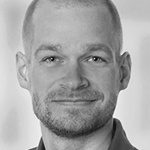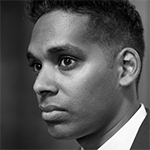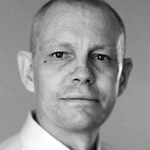Why 46 CBS alumni choose to ‘pay it forward’ as mentors

Stock photo: photographee.eu (Shutterstock)
During the winter 2017-2018, 46 alumni have been volunteering as mentors for a grand total of 248 CBS students. Each mentor is in charge of a group of nine to ten first year graduate students and third year bachelor students. During four meetings, they share their experience and insight into the labour market, providing inspiration for the students’ first step towards their future careers.
The mentors are just one element in CBS’ mentoring programme, an exclusive career development programme and network for CBS students who are committed to delivering a dedicated effort investing in their future careers and making themselves more interesting to potential employers. The programme also offers traditional career counselling, seminars, and networking, as well as tools for personal insight and professional development.
The key aspect, however – which is also what the students, according to themselves benefit the most from – is the contact with the business professionals who are their mentors. But what do the mentors get out of committing themselves to a group of students? We have asked four of them.

Peder Kofoed Pedersen, Regional Sales Manager in Hilti
Peder Kofoed Pedersen graduated as BSc in Economics and Business Administration and MSc in Economics and Marketing. Following a series of years in Miele, where he worked as product manager and later as marketing manager, he joined Hilti – a company that designs and produces advanced tools, software, and services for the professional construction industry across the world.
Why did you become a mentor?
I chose to become a mentor for two primary reasons. First, I thought that the mentee experience sounded like a great opportunity for CBS’ students and it would definitely have been something that I myself would have applied for when I was one. So I believe it is important to support the concept. Secondly, I hoped to meet a group of talented CBS students who could challenge my own worldview and contribute with new knowledge and insights.
What do you get out of it personally and professionally?
As a mentor, I personally benefit from the new perspectives that the students bring into our mentee sessions. They are not shy of challenging and engaging in a constructive dialogue on every subject – from how to construct a good resume to how you can approach specific tasks within sales, marketing, and management. On a professional level, I gain insights into how future job seekers think and what career opportunities they dream of. My group of mentees is furthermore very international which gives me the added benefit of diverse perspectives on the topics we discuss.
What does your employer get out of your engagement in CBS as a mentor?
My employer gains valuable insights into how a diverse group of very talented and ambitious CBS students think and prioritize. For example, what is important to them in a recruitment situation? What expectations do they have of a modern workplace? What can they contribute with in terms of new methods and knowledge? Knowledge like this is incredibly useful to any company that wishes to stay ahead and wants to attract the greatest talents.

Ashvind Kumar Guness, Investment Director in Danske Bank
Ashvind Kumar Guness is a MSc in International Business and CEMS Master's in International Management from 2009. He works in Danske Bank Wealth Management division’s alternative investment unit, where they execute investments of unlisted assets across the capital structure through direct investments and funds.
Why did you become a mentor?
I became a mentor, because I wanted to get a better understanding of how students are thinking in terms of their career aspirations and potential employment routes.
What do you get out of it personally and professionally?
Personally, it is always a great learning experience to get to know new people, in my case also from different cultures. Specifically, through discussions with the mentees, my own views and perceptions are also challenged. Professionally I can extend my network through both the mentees and the mentors.
What does your employer get out of your engagement in CBS as a mentor?
It gives me the chance to brand my employer to prospective employees and is also a source of recruitment.

Oliver Victor Wormslev Petersen, Senior Route Development Manager at Copenhagen Airport
Oliver Victor Wormslev Petersen is MSc in Economics and Marketing from 2005. Since graduating from CBS, he has mainly worked with market analysis, strategy development and sales. He has worked for the American companies 3M and ACNielsen, as a consultant and product manager for the latter. Through the past eight years he has been working for Copenhagen Airport mainly within route development, and he is today responsible for Europe and Africa, travelling around the world to attract new airline routes and more flight capacity on existing routes.
Why did you become a mentor?
I enjoyed studying at CBS and saw the role as mentor as a way of giving back from my career to students at my old educational institution – in terms of how to achieve your goals in life and your career, about what is expected of a recent graduate in the private sector, and also how to find your right place. In addition, I wish to help the Danish and European youth get the best possible start to their careers, so Danish and European industry and commerce do well in the future.
What do you get out of it personally and professionally?
I gain insights into how it currently is to be a student in a study programme with a commercial focus – 12 years past my own graduation as MSc. In my job function, this is a very relevant insight to get, but I am also part of this mentor program to help others. I do not remember any mentor programmes from when I was studying – but as a father of two small children, I hope that this type of programme can become a lasting success so that they might receive this kind of support for the first part of their career journeys, should they choose to study at CBS.
What does your employer get out of your engagement in CBS as a mentor?
My employer gets an employee with an increased understanding of younger colleagues’ need for support or guidance in their tasks. Also, I work in a Danish company that frequently hires new employees – and the more qualified and reflected the graduates are, the better. That benefits not only my company, but also Danish and European society as a whole.

Jan Elleby, Deputy Chief Superintendent in the National Commissioners Office
Jan Elleby is Master of Public Governance from 2015. He works in the National Commissioners Office’s Business Development unit, ensuring proper implementation of IT tools for operative work. He has previously been head of human resources, head of logistics, and worked with intelligence and analysis. Furthermore, he occasionally works for the police abroad and spends 3-8 weeks a year management skills in different African countries.
Why did you become a mentor?
I have previously mentored young police managers regarding their careers and found the role to be very interesting and rewarding. I became a mentor at CBS to examine whether or not it was meaningful for both my mentees and me to mentor students who are not involved in police work. Furthermore, engaging with young people in this manner is a good way for me to broaden my own horizon.
What do you get out of it personally and professionally?
I practice listening intently to bring the conversation to a point where it can benefit my mentees. I gain an understanding of the concerns the young people have about performance, studying, and about their future, and this gives me additional tools to understand young police officers who must use the IT tools that I implement. Personally, it is a great pleasure to meet committed and talented – but also worried – students.
What does your employer get out of your engagement in CBS as a mentor?
My commitment as a mentor is a spare time activity and independent of my employment – however, my employer benefits from the personal and professional development of my insights, as mentioned above.